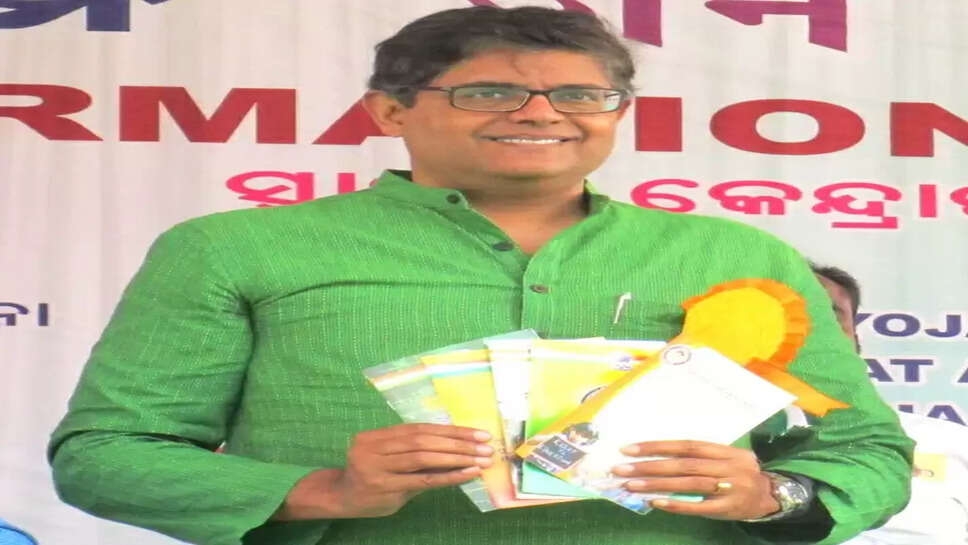The Muslim Countries We Visited See India as an Opportunity, Pakistan as the Problem Child Baijayant Panda

In a candid and insightful commentary on India’s evolving relationship with Muslim-majority countries, Baijayant “Jay” Panda, a prominent Indian politician and policy analyst, recently articulated a nuanced perspective on the geopolitical dynamics in the region. According to Panda, the Muslim countries India has engaged with perceive India as a growing opportunity for economic, strategic, and diplomatic partnerships, while viewing Pakistan increasingly as a “problem child” in the regional order. This analysis underscores significant shifts in South Asian geopolitics and India’s rising stature on the global stage.
The Changing Landscape of India-Muslim World Relations
Historically, India’s relationship with Muslim-majority countries has been complex, shaped by colonial legacies, religious ties, and geopolitical rivalries. However, in recent decades, there has been a marked transformation in how these countries interact with India.
-
Economic Engagement:
Many Muslim countries, especially in the Gulf and Southeast Asia, have recognized India as a vital trade and investment partner. India’s growing market, skilled workforce, and strategic location have made it attractive for business and infrastructure development. -
Strategic Cooperation:
Beyond economics, India has built robust security and intelligence partnerships with Muslim countries to combat terrorism, promote regional stability, and counter extremism. -
Cultural and Diaspora Connections:
With millions of Indian expatriates living in the Gulf and other Muslim-majority nations, people-to-people ties have further cemented diplomatic goodwill.
Pakistan’s Waning Influence in the Muslim World
Baijayant Panda’s characterization of Pakistan as the “problem child” reflects a growing frustration among many Muslim countries with Islamabad’s policies and behavior.
-
Support for Extremism:
Pakistan’s alleged continued support for militant groups has alienated many countries that are prioritizing stability and counterterrorism cooperation. -
Diplomatic Isolation:
While Pakistan has traditionally sought to present itself as a leader of the Muslim world, its aggressive stance toward India, particularly over Kashmir, has often isolated it diplomatically. -
Economic Challenges:
Pakistan’s economic struggles and reliance on external aid have further diminished its stature compared to the economically vibrant India.
Recent Diplomatic Engagements: Evidence of Shifting Perceptions
India’s outreach to Muslim countries through high-level visits, trade missions, and cultural exchanges have yielded positive results.
-
Visits to Gulf Countries:
Baijayant Panda highlighted visits to nations like the United Arab Emirates, Saudi Arabia, and Qatar, where India’s engagement has deepened. These countries increasingly see India as a reliable partner in energy, technology, and infrastructure. -
Participation in Regional Forums:
India’s inclusion in forums like the Organization of Islamic Cooperation (OIC) and enhanced ties with ASEAN countries with significant Muslim populations also reflect growing acceptance. -
Investment and Trade Growth:
Bilateral trade with Muslim-majority countries has surged, with sectors like petrochemicals, pharmaceuticals, and information technology leading the way.
Strategic Implications for South Asia
The evolving perceptions of India and Pakistan among Muslim countries have broad ramifications for regional security and diplomacy.
-
Reduced Space for Pakistan’s Narrative:
As more Muslim countries prioritize economic pragmatism and counterterrorism, Pakistan’s traditional narrative of victimhood and religious leadership finds fewer adherents. -
Enhanced India’s Role:
India’s expanding partnerships provide it leverage in regional forums and strengthen its position in multilateral negotiations. -
Potential for Stability:
Strong India-Muslim world relations can foster greater stability in South Asia, provided Pakistan reconsiders its confrontational policies.
Baijayant Panda’s Call for India’s Diplomatic Strategy
Panda advocates for India to capitalize on this shifting landscape by deepening ties with Muslim-majority countries while addressing misconceptions through proactive diplomacy.
-
Focus on Economic Diplomacy:
Emphasizing mutual economic benefits can cement long-term partnerships. -
Cultural Diplomacy:
Leveraging India’s diverse heritage and promoting people-to-people exchanges can build trust and counter negative stereotypes. -
Balanced Approach:
While engaging Muslim countries, India should maintain a firm stance on security concerns related to Pakistan.
Challenges Ahead
Despite positive developments, the relationship between India and the Muslim world is not without challenges.
-
Historical Sensitivities:
Lingering mistrust related to communal issues within India can sometimes cloud external perceptions. -
Geopolitical Rivalries:
Competition between global powers in the Middle East can complicate India’s engagement strategy. -
Pakistan’s Continued Influence:
Pakistan retains some influence, especially through religious and political networks, which can counter India’s efforts.
The Role of Soft Power
India’s cultural, educational, and religious soft power remains a critical tool in reshaping perceptions.
-
Islamic Heritage:
India’s rich Islamic history, including monuments like the Taj Mahal and cities like Hyderabad and Lucknow, can be highlighted as symbols of pluralism. -
Educational Exchanges:
Scholarships and academic partnerships with Muslim countries help build goodwill. -
Media and Communication:
Promoting balanced narratives and success stories from India can counter misinformation.
Baijayant Panda’s remarks serve as a reminder that India’s future in South Asia and the broader Muslim world depends on sustained, strategic engagement and mutual respect.
-
Continued Outreach:
Expanding diplomatic visits, trade agreements, and joint initiatives will reinforce India’s role as a partner of choice. -
Addressing Internal Issues:
Ensuring protection of minority rights and promoting inclusivity within India will strengthen its external credibility. -
Engagement with Pakistan:
While maintaining vigilance, India should remain open to dialogue if Pakistan demonstrates genuine commitment to peace.
The observation by Baijayant Panda that “the Muslim countries we visited see India as an opportunity, Pakistan as the problem child” encapsulates a significant shift in South Asian geopolitics. India’s rise as an economic and strategic partner in the Muslim world contrasts sharply with Pakistan’s increasing isolation due to its policies.
For India, this presents an opportunity to build lasting partnerships that benefit not only bilateral relations but also regional peace and prosperity. For Pakistan, it is a cautionary tale urging reconsideration of its international strategy.
Ultimately, the evolving perceptions reflect the broader global trend towards pragmatic diplomacy, economic collaboration, and collective security — pillars upon which the future of South Asia and its engagement with the Muslim world must be built.
.jpg)